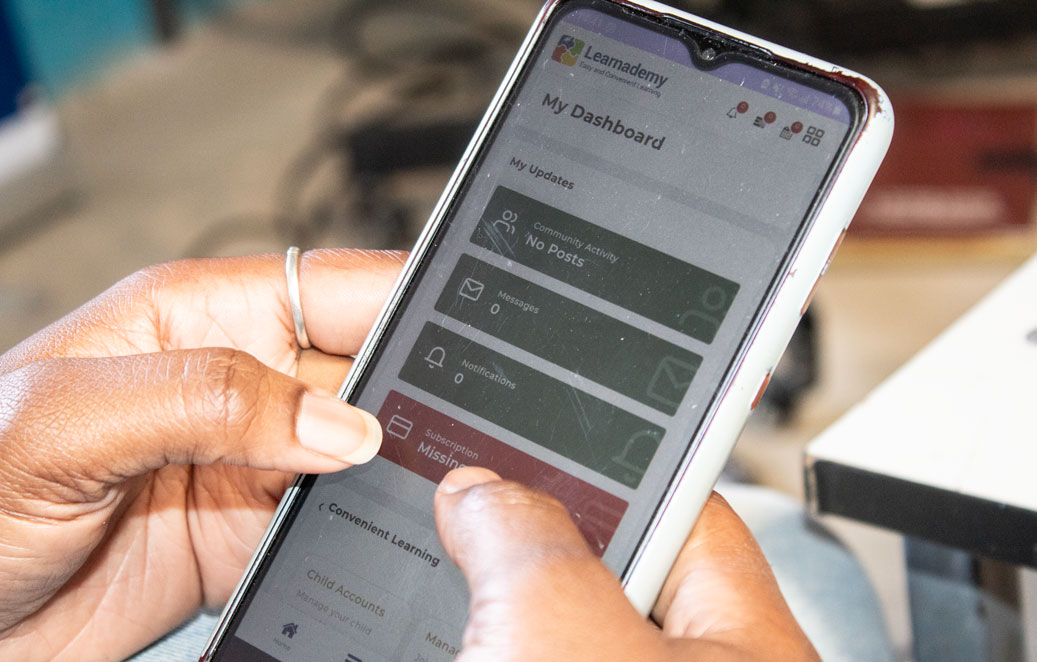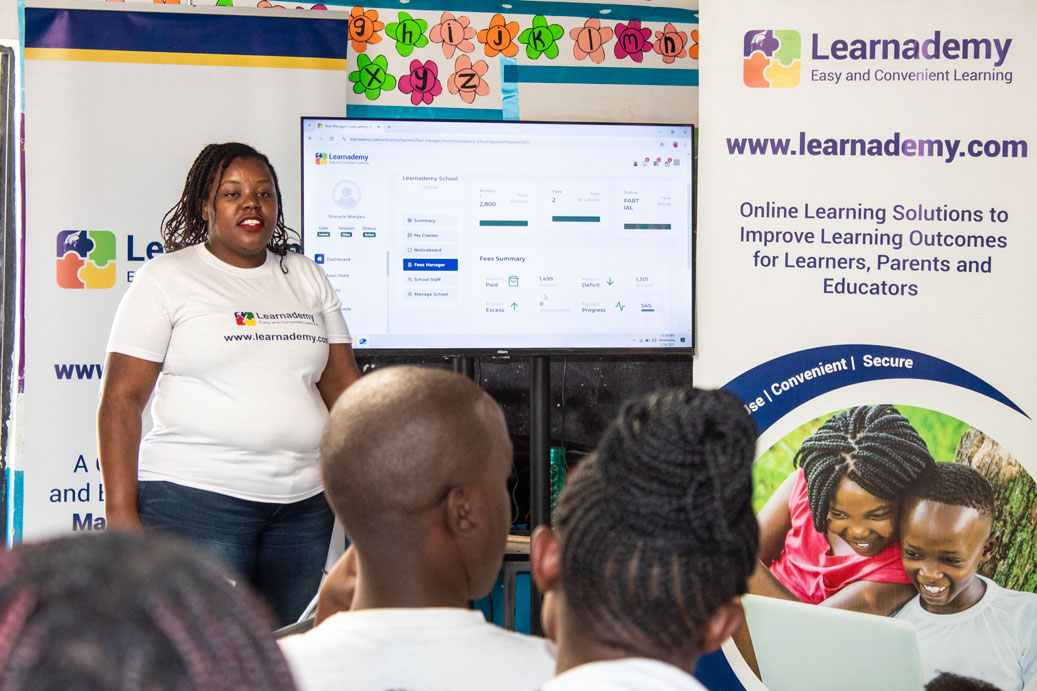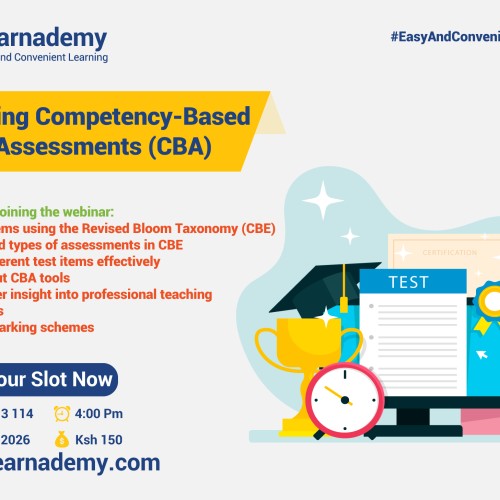-
Back
- Blog
- Browse Blogs
- Blog Post
- Get In Touch
-
Explore
- Sign up
- Login
Blog Inquiry

Transforming School Management in Kenya: The Role of Digital Systems in Education
28 May 2025 TechnologyIf you’ve ever stepped into the office of a typical Kenyan school—whether a busy private academy in Nairobi or a modest public institution in the countryside—you’ll likely find the same scene: stacks of dusty ledgers, overstuffed filing cabinets, and harried administrators flipping through paper registers to locate a single student’s records.
For years, school management in Kenya has been marked by manual labor, miscommunication, and financial headaches. Teachers spend hours marking attendance on paper sheets that easily get misplaced. Parents struggle to keep up with fee balances, often receiving updates too late to avoid penalties. School principals wrestle with disorganized financial records, making it nearly impossible to forecast budgets accurately. The reality is stark: our schools are still running on systems designed for a different era.
But change is coming. Across Kenya, from Mombasa to Kisumu, forward-thinking schools are embracing school management systems—digital tools that streamline operations, enhance transparency, and bring much-needed efficiency to education administration.
This isn’t just about replacing paper with screens; it’s about freeing schools from the weight of outdated processes so they can focus on what truly matters—teaching and learning.
The Pain Points of Traditional School Management in Kenya
1. The Paper Chase: Lost Records, Wasted Time
In many Kenyan schools, student records are still kept in physical files—birth certificates, admission forms, report cards, and disciplinary notes all stuffed into folders that can vanish overnight. Misplaced files mean wasted hours searching, delayed admissions, and frustrated parents.
2. Fee Management: A Constant Headache
Ask any school bursar about their biggest struggle, and they’ll likely say fee collection. Manual tracking means errors—unrecorded payments, forgotten deadlines, and parents who only realize they owe money when their child is sent home. In rural schools, where parents often lack access to banks, the problem is even more severe.
3. Communication Breakdowns
How many times have parents missed a crucial school meeting because the notice never reached them? Or teachers scrambled to adjust lesson plans because exam schedules weren’t shared in time? Paper letters are unreliable—messages get lost, ignored, or buried in a flood of other notifications.
4. Curriculum Delivery Under CBE
With the Competency-Based Education (CBE) now in full swing, teachers must track individual student progress more closely than ever. But without digital tools, recording competencies, assignments, and assessments becomes a logistical nightmare.
5. Boarding Schools: A Web of Logistics
Boarding institutions face an added layer of complexity—managing dormitories, meal plans, and student welfare manually is a recipe for chaos. A single missing attendance sheet can mean a student’s whereabouts go unaccounted for, raising safety concerns.

The Digital Shift: How School Management Systems Are Changing the Game
Kenyan schools are waking up to the power of integrated school management systems—software designed to automate, simplify, and secure daily operations.
Imagine a school where:
- A parent receives an automatic SMS the moment their child’s fee payment is due, with a payment link they can pay via M-Pesa.
- A teacher marks attendance on a tablet, and the data syncs instantly with the principal’s dashboard.
- The school accountant generates financial reports with a single click, spotting trends before cash flow becomes a crisis.
- A student’s entire academic journey—from admission to graduation—is stored securely online, accessible in seconds.
This isn’t a futuristic dream. Many schools in Kenya are already adopting systems like Learnademy and have experienced dramatic improvements in efficiency, parent engagement, and financial control.
Why Learnademy? A School Management System Built for Kenya
Not all school management systems in Kenya are created equal. Some are too complex, others too rigid. Learnademy is designed with Kenyan schools in mind—addressing the unique challenges while staying simple enough for any administrator, teacher, learner or parent to use.
1. User Manager: No More Lost Student Files
Gone are the days of digging through filing cabinets for a single admission form. Learnademy’s User Manager keeps every student, parent, and staff record in one secure place. You can easily check a student’s attendance history with a few clicks.
2. Class Manager: To Organize and Make Learning Simple
It is time to avoid the endless paperwork of creating timetables, assigning teachers, and sharing class materials. With Class Manager, schools can:
- Set up digital noticeboards for instant announcements.
- Share lesson plans and assignments online.
- Easily track classroom engagement.
3. Curriculum Manager: Keeping Up with CBC Demands
The CBC (now CBE) requires detailed tracking of learner progress. Learnademy’s Curriculum Manager allows teachers to:
- Upload competency assessments.
- Monitor individual student growth.
- Adjust teaching strategies based on real-time data.
4. Easy Communication: Bridging the Gap Between Schools and Parents
Kenyan parents are busy balancing work, farming, and family duties. Learnademy’s bulk SMS, email, and noticeboard tools ensure they stay informed without delay. Whether it’s exam reminders, fee statements, or emergency alerts, messages reach them instantly.
5. Finance Manager: Ending the Fee Collection Nightmare
With the Finance Manager, schools can automate fee reminders, track payments via mobile money (M-Pesa, Airtel Money), and generate financial reports for better decision-making.
6. Enterprise Solutions: Growing with Your School
As schools expand, their systems must keep up. Learnademy’s Enterprise Solutions offer scalability, whether integrating new branches, adding more students, or streamlining payroll for staff.

The Future of Kenyan Schools: A Call to Action
The evidence is clear: schools that embrace school management systems run smoother, communicate better, and make smarter financial decisions.
But the shift requires courage. For many administrators, moving away from familiar (even if flawed) manual systems feels risky. What if the power goes out? What if teachers resist the change?
These concerns are valid, but the cost of not evolving is far greater. Schools stuck in the past will struggle with inefficiencies, frustrated parents, and financial leaks that could otherwise be avoided.
What’s Next?
If you’re a school leader, teacher, or education stakeholder in Kenya, ask yourself: How much time is wasted on avoidable paperwork? Could better communication improve parent involvement? Would real-time financial tracking prevent budget shortfalls?
The tools to fix these problems exist. Learnademy isn’t just software—it’s a partner in Kenya’s educational transformation. The question isn’t whether your school should adopt a school management system—it’s how soon you can start. When schools run smoothly, teachers teach better, students learn better, and Kenya’s education system grows stronger. Learnademy stands out as one of the best school management systems in Kenya. The future of school management in Kenya is digital. Are you ready?








